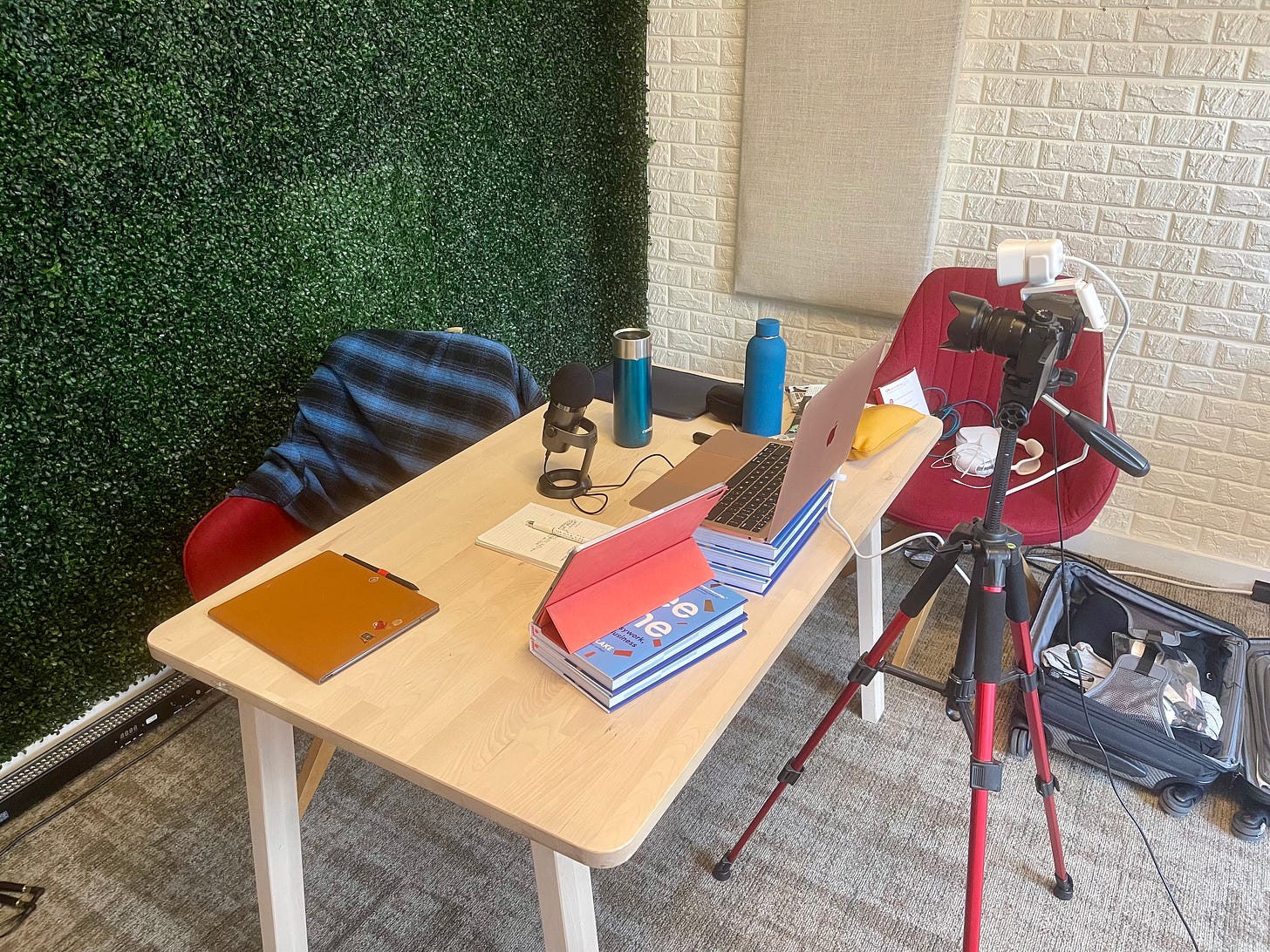🎤 The one thing I forgot to say to my speaking career these last four years . . .

There were five minutes until my virtual keynote started, and I was more nervous than usual. I looked around the rental studio and made sure everything was in order: laptop elevated, ring light on, clicker plugged in, event chat scrolling on my iPad at my right, notes tablet nearby, water and coffee within in reach to my left.

It was October 2022, and I was grateful to land a speaking gig for one of the teams within my Favorite (Former) Client. They paid my full in-person fee up-front (hallelujah!) but switched the daylong event to virtual at the last minute. Thankfully, they didn’t ask to renegotiate.
With so few speaking events booked since March 2020, I was getting rusty. Because this would stream to over one thousand people, I wouldn’t be able to see anyone’s faces the way I could in a typical Zoom room.
Once I started delivering, I could only see my own slides and reflection. I did my best to rally my energy! Sound articulate! Move the crowd! But there is something uncanny about doing this without any feedback. The sound in the room—the one I had booked away from home to be free of doorbell ringing, dog barking, and toilet flushing—was crickets.
Imagine a stand-up comic trying to work out bits in this format—it would be impossible. Thankfully this was a session I had delivered dozens of times. Sixty minutes later, it was over, and I hung up. I couldn’t speak to the organizers because they were preparing for the next speaker in the day’s line-up.
Without any sense of how I had performed, I became intensely anxious for days afterward. They paid my full in-person fee—did I do well enough? Did I bomb? Did participants get value from the session?
I’m not normally this desperate for feedback or praise, but I started losing sleep, waking up with a pit in my stomach, terribly afraid I had disappointed them, imagining that they regretted paying me so much. I was spiraling out and not even well-meaning friends could convince me otherwise. They weren’t there, they couldn’t know.
I felt my confidence slipping further away, doubt crowding it out. Maybe the jig is up, my familiar gremlin whispered. Look at your calendar, maybe there’s nothing booked for a reason, and that reason is you—you’ve lost your touch.
In a desperate move that I hoped sounded totally normal, I emailed the organizers three days later to ask if any participant feedback survey results had come through.
“Thank you again for hosting such a great session!,” one of the hosts replied. “[Co-Host] is OOO through the rest of the week, but will be in touch when he’s back with any data from the session that we’re able to provide.”
This set my paranoia off all over again. The message was so formal. Great session? Was great good enough? Was this person just being nice? There wasn’t any of the effusive praise I was used to immediately following sessions that I knew were smashing successes.
I felt pathetic for needing reassurance, for chasing it, and for now relying on it to keep my now-fragile speaking ego and fledgling keynote career afloat.
For all my kvetching about where my keynotes went four years ago, my sense of how challenging even simple-seeming events had become, and my mind whining pining for them to return,1 there is still one thing I forgot to say to my speaking career:



